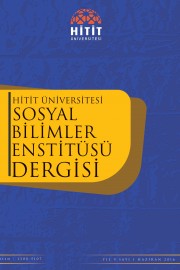Din ile Devlet Arasında Simbiyotik Bir İlişki: Türkiye’de Zorunlu Din Derslerinde Siyasal Toplumsallaşma
A Symbiotic Relationship between Religion and State: Political Socialization in Compulsory Religious Classes in Turkey
Author(s): Bayramali NazıroğluSubject(s): Politics and religion
Published by: Hitit Üniversitesi Sosyal Bilimler Enstitüsü
Keywords: Religious Education; Political Socialization; Religious Courses;
Summary/Abstract: The adaptation of all students to the political values of the society occupies an important place in the courses of Religious Culture and Moral Knowledge. In this course, not only religion and ethics, but also the basic principles of the state and other social and political issues related to the main principles of the state are taught to students. From these topics, laicism and Kemalism are the main references of the Turkish national education system and these concepts constitute the most important components of religious education courses, too. Therefore, we encounter with these concepts in many subjects and learning areas of the curriculum. In this study, we discussed the political socialization factors in the religion and ethics programs in primary and secondary education. In this context, the learning areas of the curriculum were examined and evaluated with a critical perspective. As a result, it was concluded that religion and its training are used effectively for political socialization in the programs. It means programs perform an essential task in the political socialization of the students.
Journal: Hitit Üniversitesi Sosyal Bilimler Enstitüsü Dergisi
- Issue Year: 9/2016
- Issue No: 1
- Page Range: 191-213
- Page Count: 23
- Language: Turkish

